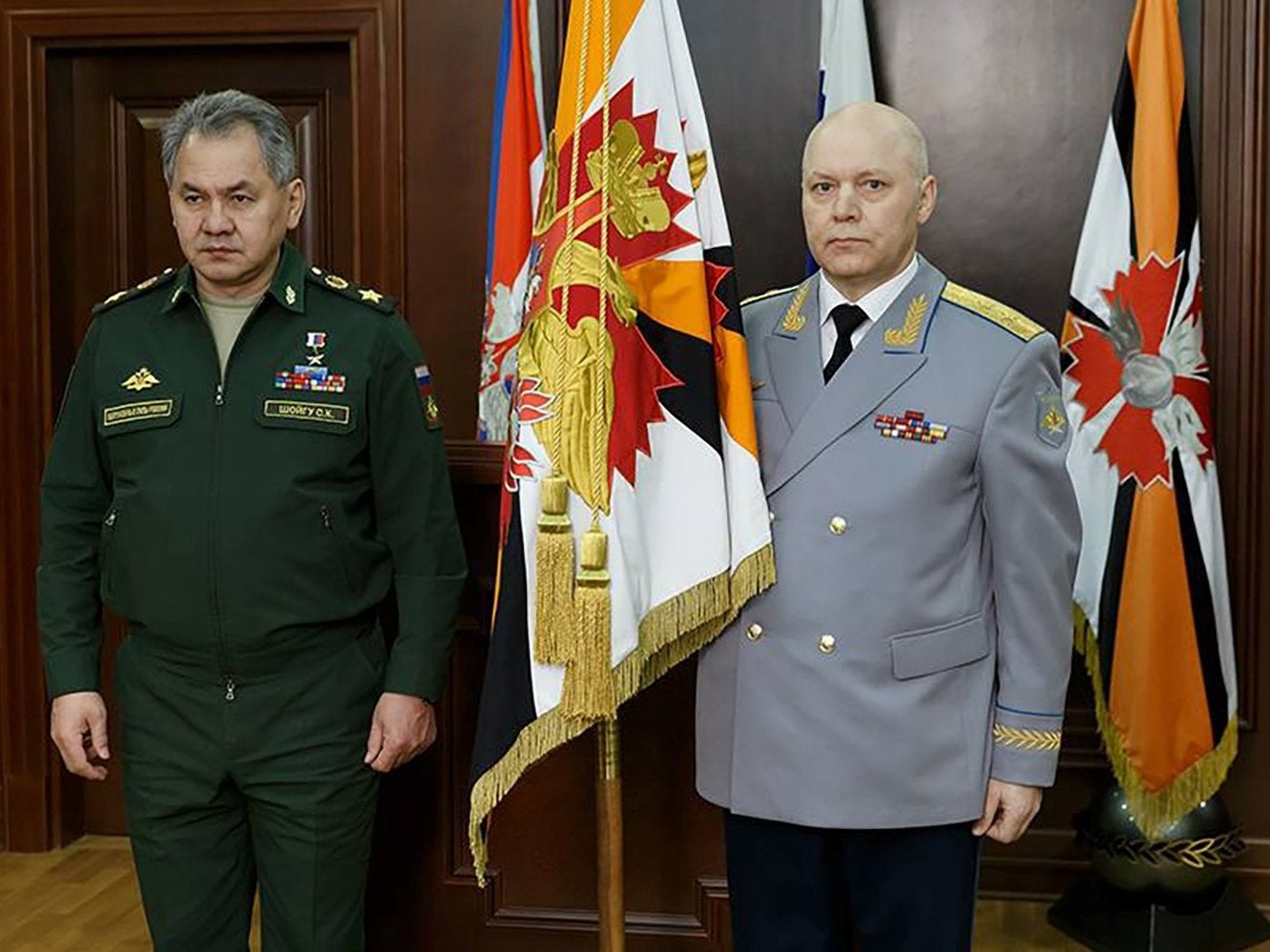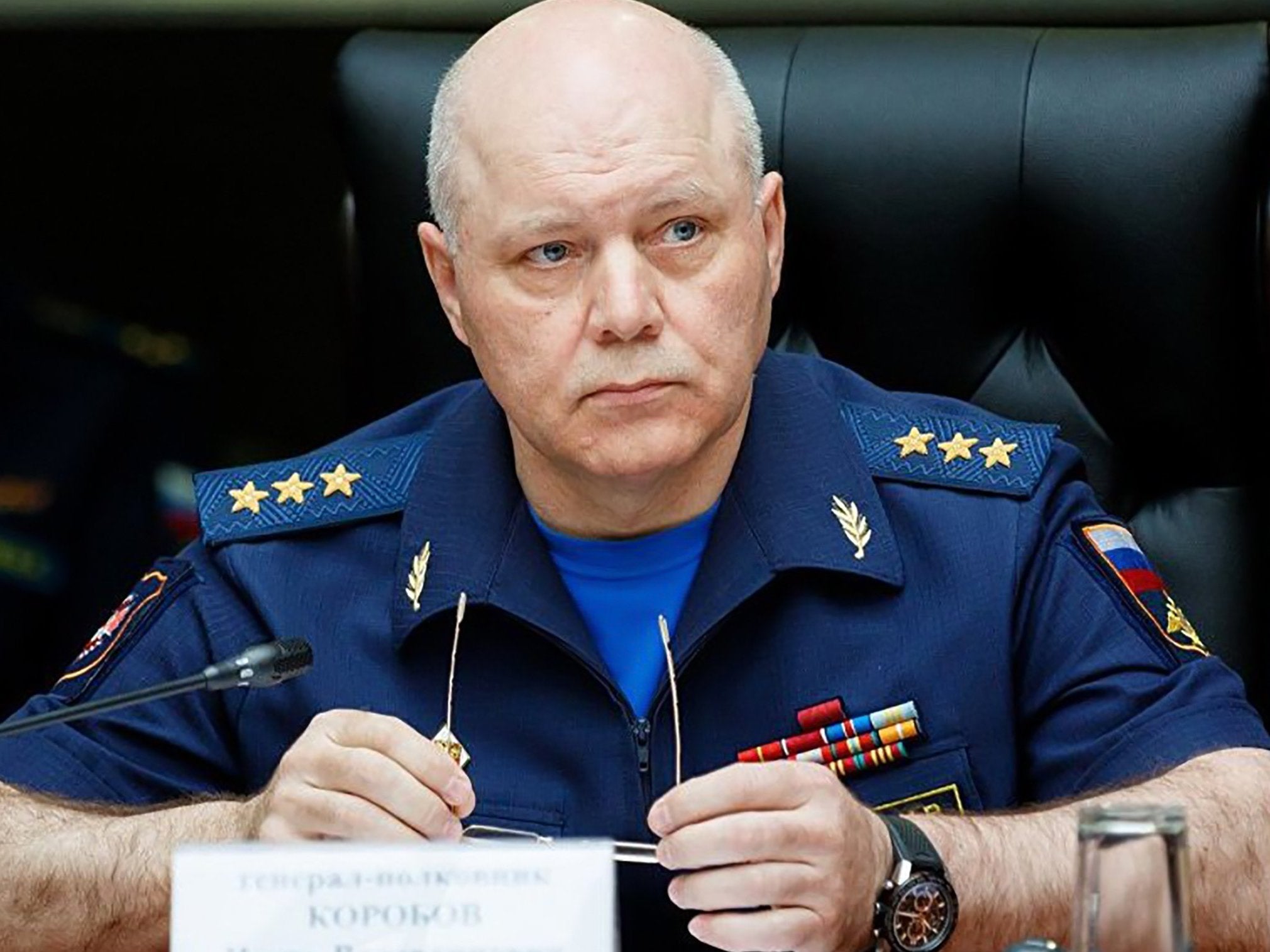Igor Korobov: Death of Russian GRU chief latest in long line of fatal incidents surrounding agency
Analysis: Igor Korobov will be remembered for a string of intelligence failures for which he held limited responsibility

Early on Thursday morning, Russia announced the death of the head of its military intelligence (GRU) service, Igor Korobov, aged 62, following a “prolonged illness”.
The death of a Russian man (life expectancy 71) in a highly stressful post would not on its own seem surprising. But as the second death of a GRU chief in two years, the news was enough to raise eyebrows.
Korobov’s predecessor, Igor Sergun, died in 2016 in circumstances still disputed, with one version suggesting he died in Beirut, rather than Moscow as officially claimed. A number of suspicious deaths went before that. In 2009, a deputy GRU chief was found washed up on a Turkish beach. In 1997, a major general fell out of a window. In 1996, a top officer was run over by a car. And in 1992, a deputy head of the agency was killed in a car accident.
In Korobov’s case, there is no evidence to suggest anything other than the official version is true.
Alexei Venediktov, the well-connected editor of Echo of Moscow, a largely independent voice, said Mr Korobov had indeed suffered a long illness. Another liberal publication, Novaya Gazeta, said that Korobov had delegated management to his deputy in the summer.
But that, suggested the opposition journalist Yevgeniya Albats, was evidence of “incompetence of top government and the people at the very top”.
Korobov presided over the most scandalous two years in the GRU’s history, and at a time when the service went far beyond its traditional remit of military intelligence.
At various points his agency was accused of: interfering in the 2016 US presidential elections; hacking the computers of the Worldwide Anti-Doping Agency and International Arbitrage Court; organising a coup in Montenegro; conducting nerve agent assassination operations on British soil; and sending four agents to snoop on the work of the chemical weapons watchdog in the Netherlands.
Since 2013, the GRU has increased its influence at Russia’s top security table.
The first two post-Soviet decades (1990-2010) were tough on the service, with underfunding, cuts and geopolitical withdrawal undermining its historical mission. But the agency’s more relaxed attitude to risk gave it new purpose when Russia began a new phase of military operations. GRU operatives played leading roles in semi-covert operations in eastern Ukraine from 2014 (operations the Kremlin denies) and in Syria from 2015.
Korobov’s contribution was acknowledged by the Kremlin in 2017 when he was awarded the highest state honour, the title Hero of the Russian Federation. A year earlier, the United States gave its own assessment of his work, including him on a sanctions list.
This year, however, brought problems. As GRU operations increased in number and audacity, so too did their visibility. Sloppy intelligence lapses were uncovered by online investigative journalists, and this led to revelations about the probable identities of several hundred active agents.
The notoriously secretive Korobov, a career spook, made no statement on the scandal. Some sources speculated that the official may even have fallen foul of the Kremlin. But other, more reliable sources, suggested that the contrary was true. A morale-raising speech on the service’s centenary party, in which Vladimir Putin promised to return the agency’s more popular name, seemed to back up that assertion.

Security expert Alexander Golts told The Independent that he had no evidence GRU’s leadership had been reprimanded, nor that Korobov’s death was anything but natural.
At the same time, he said, the intelligence chief’s two-year tenure at the top will ultimately be remembered for the lapses and the failures.
“The tragedy for him is that he wasn’t really to blame for much of it,” he said.
Much more important, says Golts, was a change in Russia’s military posture in 2012, first signalled by the newly-installed chief of the general staff, Valery Gerasimov.
“Gerasimov’s new doctrine ended the distinction between states of war and peace, and envisaged the GRU playing a leading role in a new endless, non-linear war,” he says.
“Almost as soon as the GRU lost focus on its traditional targets, the failures began.”
On Thursday evening, Moscow announced that Korobov would be temporarily succeeded by his deputy, Igor Kostyukov.
Join our commenting forum
Join thought-provoking conversations, follow other Independent readers and see their replies
Comments